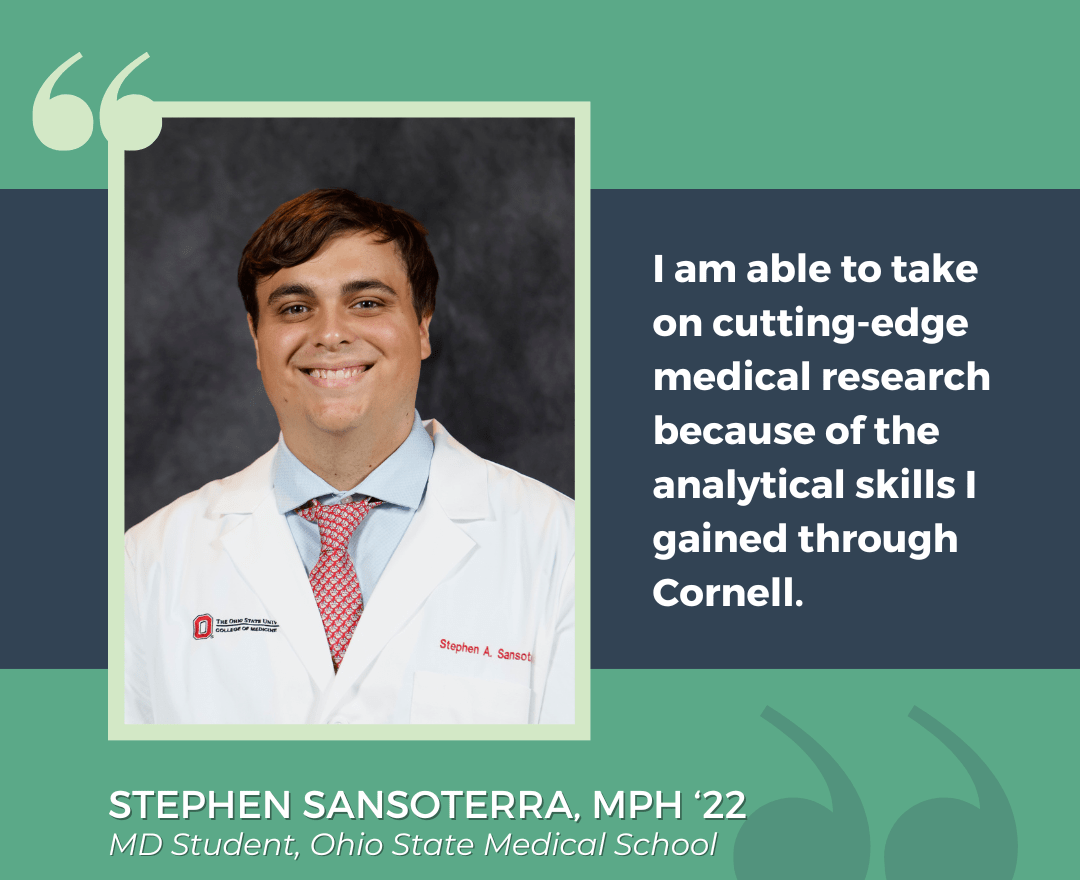Alumni in action: Stephen Sansoterra
 When Stephen Sansoterra applied to Cornell in early 2020, Covid-19 had just arrived in the U.S. “I was interested in learning more about public health during a pandemic, while taking a step into healthcare,” he remembers. He was drawn to Cornell Public Health’s “holistic approach.”
When Stephen Sansoterra applied to Cornell in early 2020, Covid-19 had just arrived in the U.S. “I was interested in learning more about public health during a pandemic, while taking a step into healthcare,” he remembers. He was drawn to Cornell Public Health’s “holistic approach.”
Last year, after graduating with an MPH degree, Sansoterra enrolled in the MD program at The Ohio State University College of Medicine. In his first year of medical school, he has already led statistical analysis efforts on multiple research projects based on modeling and monitoring heart rates and rhythms in patients at high risk for atrial fibrillation using 24-hour rhythm monitors.
Sansoterra attributes this opportunity to what he learned and experienced at Cornell, both in data analysis courses and through a long-term internship with cardiologist Dr. Saed Mahmood at Weill Cornell Medicine. There, he conducted in-depth statistical analyses of cardiovascular sequelae of Chimeric Antigen Receptor T-cell therapy, a novel cancer immunotherapy tailored to individual patients by re-engineering their own T cells to identify and attack cancer cells. He presented his work from this internship at the American Heart Association Scientific Sessions in 2022, a national conference, and published a paper in the European Health Journal. In medical school, Sansoterra finds that many physician-researchers understand statistics on a broader level, but still need someone to “do the nitty gritty statistical work.” Now, he’s that person on research teams, and recognizes the value of his skills.
“The whole field of medicine is moving very quickly,” says Sansoterra, and his grasp of statistics helps him “understand what’s current and being published without having to wait for large associations to come forward with recommendations.” In his future career, he envisions working in an academic hospital, pursuing medical research while also working with patients. In addition to developing sophisticated data analysis skills, he says, “the biggest benefit of being at Cornell was really the One Health perspective, since now I have deep knowledge of the different factors that determine and predict health outcomes. It has helped me see the forest, instead of just the trees.”
Written by Audrey Baker
